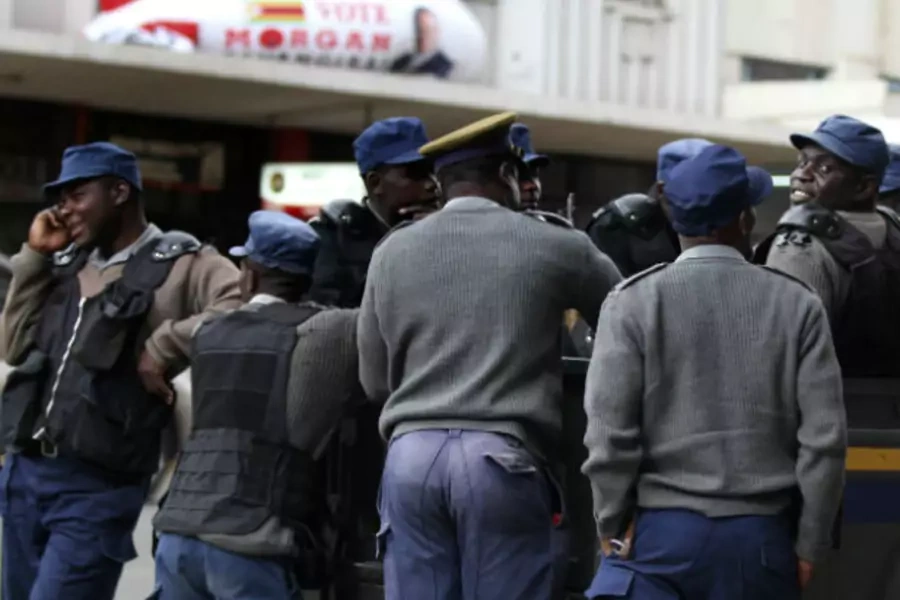More on:
Zimbabwean president Robert Mugabe and his party ZANU-PF have consistently used repression to remain in power. The aftermath of the July 31 elections is no exception.
According to SW Radio Africa, "ZANU-PF youth militia are threatening to punish anyone who witnessed electoral fraud and speaks about it.” The Herald, a ZANU-PF organ, has published a warning from the senior assistant commissioner of police: “We want to warn politicians who are considering this option of inciting Zimbabweans into mass protests that it is not good for the country. Politicians should not blame the police when they find themselves on the wrong side of the law.” The Herald also reports that the police have mounted nationwide roadblocks and are searching vehicles moving toward city centers. ZANU-PF also uses traditional rulers as enforcers.
Thus far, there has been no violence. Principal opposition leader Morgan Tsvangirai says that his MDC-T party will contest the election results in the courts, boycott any contact with the government, and lobby the African Union (AU) and the Southern African Development Community (SADC) to overturn the elections. But an MDC-T spokesman who lost in his constituency says the party could take to the streets. The MDC-T party treasurer is urging people to resort to civil protests.
Repression and the memory of official violence in the past may dampen enthusiasm for taking to the streets. But, if there are protests, the behavior of the security services will be key as to whether they morph into more general violence. In the past, security service violence ignited a violent response from protestors.
As for international reaction to the elections, it looks like “west” versus “south,” with the west reflecting the views of the most credible Zimbabwean civil society umbrella, the Zimbabwe Elections Support Network (ZESN). The AU and SADC have endorsed the elections; South African president Jacob Zuma offered “profound congratulations to Robert Mugabe," and former Nigerian president Olusegun Obasanjo also endorsed the elections on behalf of the AU.
But Australia, Britain, and the United States have expressed, in the words of UK foreign minister William Hague, “grave concerns.” U.S. Secretary of State Kerry is forthright: “In light of substantial electoral irregularities reported domestic and regional observers, the United States does not believe that the results announced today represent a credible expression of the Zimbabwean people.” Australia warned that it will not lift its sanctions on ZANU-PF unless free and far polls are held; it calls for a re-run.
The official political opposition in South Africa, the Democratic Alliance states: “By congratulating Robert Mugabe on his stolen election, President Zuma has failed Zimbabwe, failed Zimbabweans, and failed the South African Development Community by not providing the leadership that the region desperately required.”
More on:
 Online Store
Online Store
